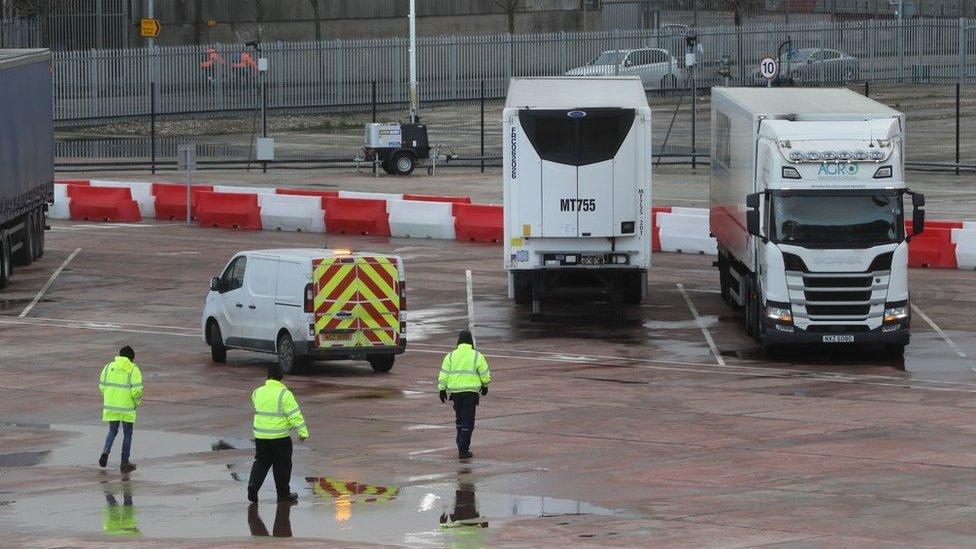Brexit: Lough Neagh eels can't be sold in Britain
- Published
- comments
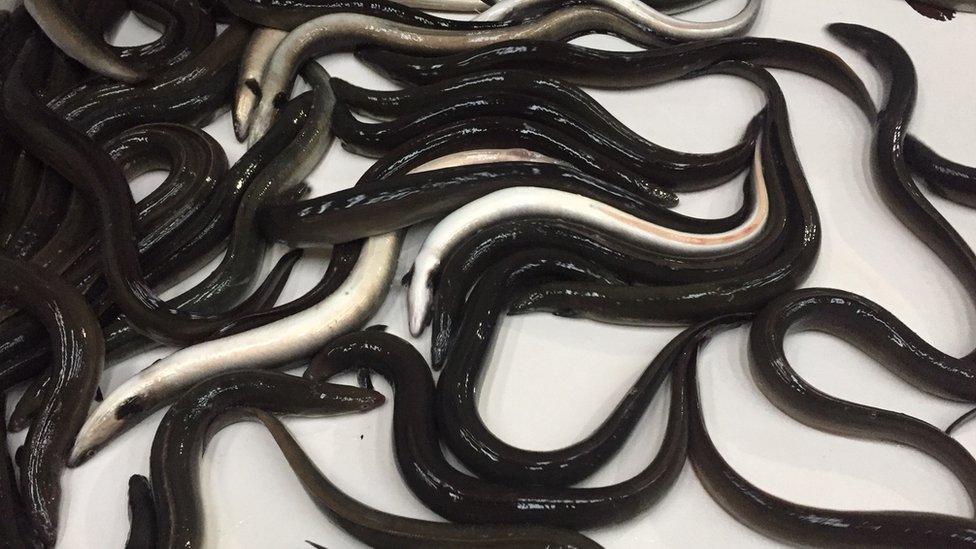
The EU has banned sales of eels with any country outside the union, as part of a conservation effort
Lough Neagh eel fishermen will have to find new markets for a fifth of their catch due to Brexit and the operation of the Northern Ireland Protocol.
It means finding new buyers for 50 tonnes of eels, worth £500,000, just months before the start of this year's season.
The fish would traditionally have gone to Billingsgate Market in London and been sold as jellied eels.
But the complexities of Brexit mean that trade is no longer possible.
It comes as restocking Lough Neagh with juvenile fish becomes more complex and costly.
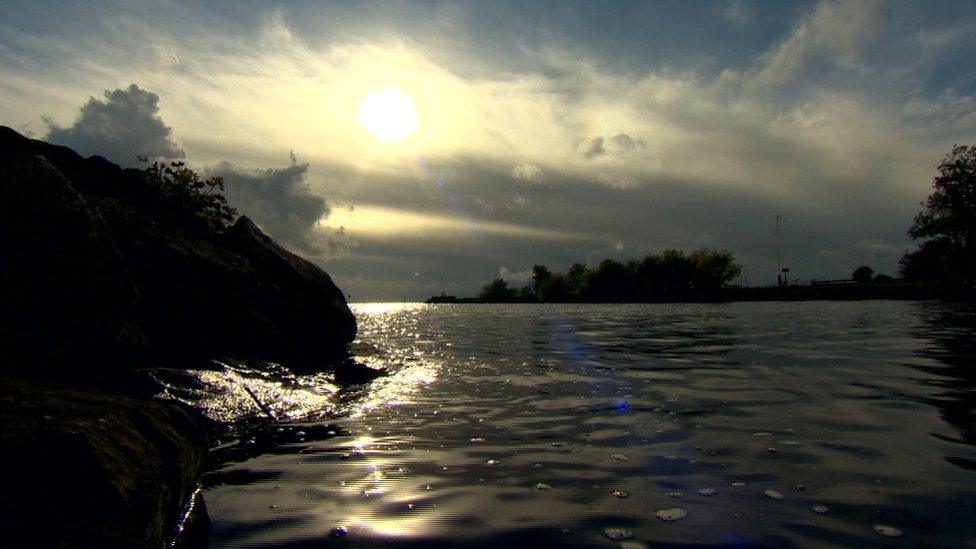
European Eels are an endangered species and the trade in them is strictly regulated.
The EU has banned sales with any country outside the European Union as part of a wider conservation effort.
Under the terms of the NI Protocol, eel fishermen in Lough Neagh are covered by those rules.
That means the sale of eels into Britain is no longer permitted.
Pat Close of the Lough Neagh Fishermen's Co-operative said London was an important market providing "very significant trade".
A total of 80% of the eel catch goes to EU markets, predominantly in the Netherlands.
The other major issue is restocking, which is carried out each year to keep the fishery sustainable.
Traditionally the juvenile fish - or glass eels - would have been brought in from Britain.
However, they can no longer be imported to Northern Ireland under the same EU rules.
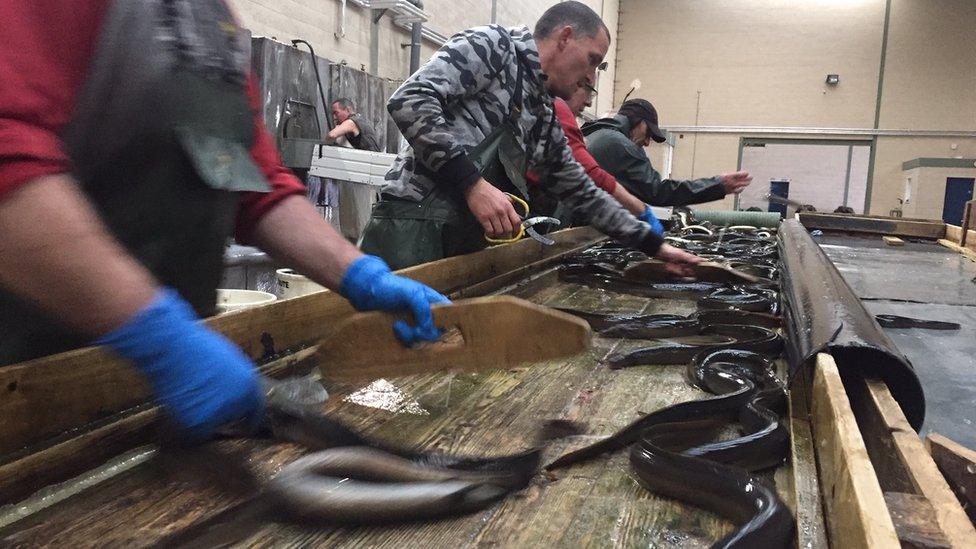
About 200 fishermen catch around two million eels a year from Lough Neagh
Peter Wood supplied Lough Neagh from his base on the River Severn on the border of England and Wales.
But the trade ban has wiped out the Brexit-supporting businessman's markets on the continent and in Northern Ireland.
"We always thought Northern Ireland was a bit of a home market. It was a handy place to have," he said.
"We could ship glass eels from the River Severn to Lough Neagh in an hour-and-a-half, right on our door.
"Of course, now we find with the Northern Ireland Protocol, it could be in the middle of the world as far as we're concerned."
In a statement, the Department for Environment, Food and Rural Affairs said due to a decision from the EU Commission, it was not possible to export glass eels to the EU.
"However we continue to work closely with the sector to strengthen the case for trade to resume - and will reapply to the commission shortly," a spokesperson said.
Replacement fish for Lough Neagh may be sourced from France but may not be available in the same quantity and are likely to cost more.
There is also likely to be additional cost for the fishermen's co-operative if it has to fly its eels to the Netherlands from Dublin, rather than from the nearby Belfast International Airport, to adhere to the terms of the EU's eel trade restrictions.
Some 200 fishermen catch about two million eels a year from the lough.
Their management plan - a combination of quotas, a cap on boat numbers, and escape channels - ensure that about 40% of adult fish return to spawning grounds in the Sargasso Sea in the North Atlantic.
Related topics
- Published22 November 2018

- Published31 December 2020
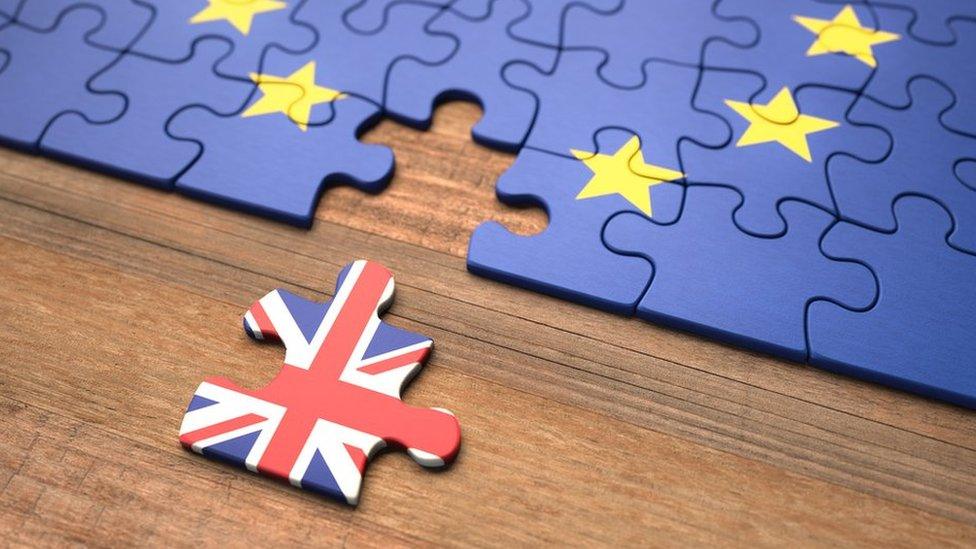
- Published23 January 2021
